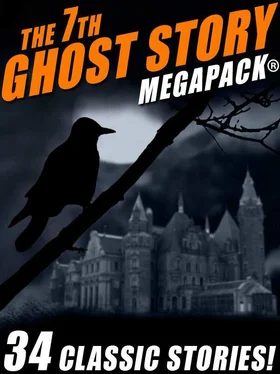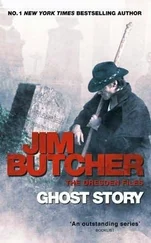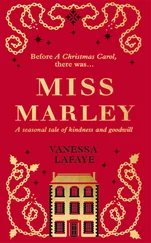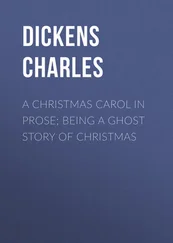I turned and sank to one knee beside the sock. I poked it with a finger. Nothing supernatural occurred. The sock was as commonplace and ordinary as…well, as old sweat socks.
“When the Bicklefords moved out,” I pronounced, “the sock was overlooked. It was probably in a dark corner of the closet shelf.”
“Brilliant,” said Judy, putting her sunny blonde head next to my drab brown thatch. “Of course it was overlooked by their movers.”
“And a breeze happened to blow it across your face.”
“Breeze?”
“Capricious breeze.”
She tilted her head and gave me a look. “Capricious breeze in an empty room with the windows closed.”
Her matter of fact tone was worse than sarcasm. My male ego recoiled. “Naturally,” I said with a certain hauteur, “the first home I finagle with a mortgage company for my wife has to be fouled up with a poltergeist!”
She gingerly picked up the sock, stood, held the sock dangling at arm’s length. “Now you’re a little closer to the beam.”
I stood up beside her, dusting my hands. “Come on, you can’t be serious. You don’t believe in zombies or voices from beyond the grave.”
“Nope,” she said, “but this sock is real as life. And poltergeists are too well authenticated to deny that something every now and then acts up in somebody’s house. There have been any number of cases in England. And how about those people in Massachusetts whose house made the newspapers? And the house on Long Island—or was it in the Bronx—that was shown on the television newscast? Crockery flying all over the place in that one—and a team of tough New York cops staked out the joint and saw some of it happen! You going to fly in the face of hard-bitten, super-realistic New York cops?”
“Not me,” I said helplessly.
“So there,” Judy said. She had riveted her gaze on the sock all this while. Now a strange mood seemed to have overtaken all of her initial fright. “You know, I really don’t think he was trying to frighten me. The touch of the sock was ever so gentle, a caress. I think he was trying to say hello and make friends. Still,” she glanced about, “I’m not sure we should plan a nursery in here.”
That’s where the subject rested for the moment. I wandered back to work, more concerned than I cared to show. In our recent college days, Judy and I had both been as far from the LSD crowd as you could polarize. Just a couple of the hard-studying non-jets that made up ninety-five percent of the student body, sans publicity, and floating sweat socks didn’t fit into our pattern of living at all.
I finished hanging the living-room draperies, heard Judy safely rattling pots, pans, and crockery from their packing crates in the kitchen, and ambled quietly out the front door.
If it hadn’t been for that sweat-sock, the day would have been perfect. Even if secondhand, the house was a cozy picture of antique brick and redwood. Judy and I hadn’t dared hope to start off so well. It had been pure luck that we’d picked up the house for practically nothing down and payments no higher than rent on a decent apartment. Wedding gifts and credit provided enough furniture to keep us from sleeping on the floor as a starter. Great luck, I’d thought. Now I was having second thoughts. Frankly, I was wondering why that Bickleford fellow had been so anxious to get out.
The house next door, to the west of us, was as quietly white collar as the rest of the neighborhood. The nameplate over the bell button said, “Tate Curzon.”
I used the button, and chimes sounded inside. The door opened a few inches and stopped.
“Yes?” he said. He had a voice like a loose violin string being stroked with a scratchy bow.
“Mr. Tate Curzon?”
“So what if I am?”
The door offered no further welcome, remaining just slightly open. From what I could see of him, he was a wiry, narrow shouldered little guy in his late forties or early fifties. He had a long red neck rising out of his starched white collar, a narrow and cruel looking face, and a pinched-up bald pate that was so freckled it looked bloody. It was easy to behold the snappish visage and imagine a vulture’s head.
I shuffled a bit uncomfortably. “Just thought I’d say hello. We’re your new neighbors, James and Judy Thorton.”
He looked me up and down, without approval. “I don’t loan tools, carpet sweepers, fuse plugs or lawn mowers.”
“No, sir.” I jammed my hands into my slacks pockets. “I didn’t want to borrow anything.”
“Then you’re not disappointed. You got any kids?”
“Not yet, Mr. Curzon.”
“Good thing. I hate brats. Always breaking down my rose arbor and throwing trash in my fish pond.”
“Yes, well… I guess the Bicklefords had kids?”
“One. Stupid oaf. Boy. Eighteen. Always roaring in and out of the driveway in that stupid sports car of his.”
“Yes, sir,” I said, agreeable as butter. “I guess all boys are that way with their first car.”
“His first and last,” Mr. Tate Curzon said on a note of malice.
“You mean—he smashed it up?”
“And himself with it. Skidded one rainy night and went over the cliffs south of town. They picked up Andrew Bickleford—and his sports car—in little pieces.”
“Gee, that’s too bad!”
Mr. Curzon’s eyes beaded. “You should care. Andy’s mother had a nervous breakdown, and that nincompoop father couldn’t put the house on the market fast enough.” The inference that I’d profited by a young stranger’s death caused the heat to rise. I felt red from cheek to jowl. I let my eyes give Mr. Curzon’s gimlet gaze tit for tat, and said stiffly, “Good day.”
He slammed the door.
When I carried my burn back into my own premises I heard a couple of female voices in the kitchen. Judy and a blowsy and slightly brassy redhead of middle age were dunking teabags in Judy’s new cups.
“Oh, hi, Jim. This is our neighbor, came over to say hello.”
“Mrs. Curzon?” I asked, moving out of the doorway toward the kitchen table.
“Heavens, no,” the woman laughed. “I’m Mabel Gosness. I live on the other side of you.”
She chatted through the ritual of sipping tea and departed with the remark that it was wonderful to have young people in the neighborhood.
Judy carried the cups to the sink and began washing them. “We had real talk before the male presence befell us.”
“Did you now?”
“She seemed terribly lonely, eager for someone to talk with. She lives alone—her husband ran away with another woman nearly a year ago.”
“Maybe one who talked less.”
Judy looked over her shoulder long enough to stick out her tongue. “And guess what else?”
“I give. What?”
“On the other side of us is a mean little man named Tate Curzon. He hates everybody. Had four wives, no less, children by one of them. But even his own kids—they’re grown up now—never go near him. Mrs. Gosness says we’re to have nothing to do with him.”
“Thanks for the advice, but I’ve met the gentleman.”
“Honest?”
“Sure,” I said, taking the cups and saucers from her to dry. “Went over and said hello. Wondered if he could tell me why Bickleford was so anxious to sell this house.”
Judy practically wriggled. “And did you find out?”
I hesitated, balanced on the point of a fib, then realized she would find out from Mrs. Gosness anyway. So I told her about young Andy Bickleford who’d been picked up in pieces and a mother whose mind hadn’t been able to take it and a father-husband to whom the end of the world had come.
“I’ll bet that sock was Andy’s. The room must have been his.” A suspicion of tears touched Judy’s eyes.
By bedtime, our first day of settling into our new home had got our minds off the tragic Bicklefords. They were, after all, strangers, and the present was much too vivid. I lounged in the master bedroom in shorts, my sleeping apparel, nonchalantly pretending to read with the pillow stuffed behind my head. Actually I had the dressing room doorway framed in my vision over the edge of the book; and then the door opened and Judy stepped into the soft bedroom lighting wearing a nylon nightgown that was next to nothing. My civilized veneer barely stifled a roar of pleasure.
Читать дальше












